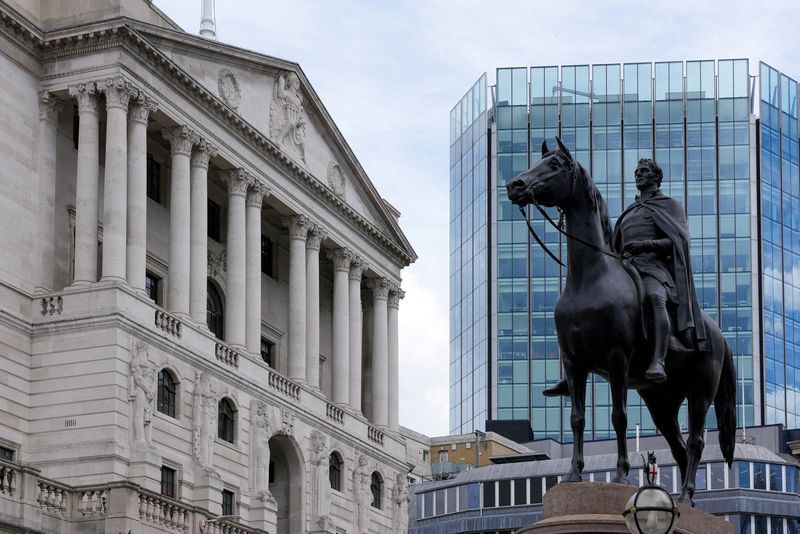A look at the day ahead in U.S. and global markets from Mike Dolan
Phrases like "you've got three days left" and "the worst is yet to come" sound like takes from disaster movies rather than soothing voices of economic policymakers - and they leave global investors on edge over rising market stresses.
As it has been for the past month, Britain remains at the centre of the storm.
There was confusion on Wednesday over just how long the Bank of England was willing to keep supporting the ailing UK bond market, which has been bamboozled by the government's unfunded tax-slashing plan and subsequent blow-up in pension fund hedging due to a surge in yields that followed.
With the BoE forced to step up its intervention to buy gilts and inflation-linked bonds on Tuesday, markets assumed it would continue to offer support beyond its own self-imposed deadline of Friday to prevent wider firesales in assets related to the pensions workout.
Then BoE chief Andrew Bailey said late Tuesday: "You've got three days left now. You've got to get this done" - even as the Financial Times reported the central bank might extend the support. A BoE spokesperson on Wednesday confirmed Bailey's stance.
The upshot has been a further rise in UK government bond yields across the curve and another, albeit brief, lunge in sterling to its lowest in two weeks. The tension built with Britain's economy looking set to go into recession as data showed it unexpectedly shrank in August.
The gilts firestorm comes amid International Monetary Fund warnings about slowing global growth to the brink of recession next year. "The worst is yet to come, and for many people, 2023 will feel like a recession," said IMF chief economist Pierre-Olivier Gourinchas.
While U.S. Treasury chief Janet Yellen claimed U.S. markets had not yet seen the same sort of dysfunction as the British gilt market, there was a widespread fear that further steep interest rate rises would raise tensions even further into year-end.
In a comment on its own polling of clients' darkening mood headlined "Paint It Black", Goldman Sachs (NYSE:GS) said the extent of the gloom meant markets may be "too one-sided" and the bar for positive surprises was very low.
But it said the resilience of incoming U.S. economic numbers was goading the Fed to tighten harder to get across inflation, and upping the risks of recession and also to financial stability. "The UK is just giving us a brief taste of what that could look like..."
The release of U.S. inflation numbers this week will be critical, with producer prices out on Wednesday and consumer price data tomorrow.
The onset of the third quarter earnings season and warnings from industry and retailers is also making for a nervy week.
Elsewhere, the Credit Suisse shares fell 3% and its credit default swaps climbed after Bloomberg reported the U.S. Justice Department is investigating whether it continued helping U.S. clients hide assets from authorities, eight years after the Swiss bank paid a $2.6-billion tax evasion settlement.
Key developments that should provide more direction to U.S. markets later on Wednesday:
* U.S. Sept Producer Price Index
* FOMC minutes of latest meeting released.
* G20 finance ministers and central bankers meet at annual IMF/World Bank meeting in Washington
* Bank of England Financial Policy Committee publishes summary of latest meeting. BoE Chief Economist Huw Pill and BoE policymaker Catherine Mann speak in London; BoE's Jonathan Haskel speaks in Manchester
* U.S. Federal Reserve Board Governor Michelle Bowman, Fed Vice Chair for Supervision Michael Barr, Minneapolis Fed President Neel Kashkari speak.
* European Central Bank President Christine Lagarde speaks in Washington,

* U.S. Treasury auctions 10-year notes
* U.S. corporate earnings: PepsiCo (NASDAQ:PEP)
(By Mike Dolan, editing by John Stonestreet. mike.dolan@thomsonreuters.com. Twitter: @reutersMikeD)